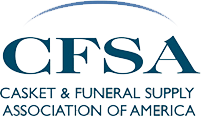Excerpt reprinted from the November 2015 issue ICCFA Magazine (www.iccfa.com).

“While funerals and memorial services may be different from what they were 25 years ago when we first began surveying consumers, the fact remains that memorialization is important when a loved one dies,” said Jeffrey Wages, a funeral director who serves as FAMIC president.
Funeral & memorial services valued
Among adults age 40 and older, 82 percent said a service was helpful in paying tribute to or commemorating the life of a friend or family member, down from 95 percent in 2010. Eighty percent felt services they attended had meaning and value and reflected the life of the deceased; in 2010, 92 percent felt the same way.
In 2015, 72 percent believed services they attended were an important part of the healing process; in 20I0, 87 percent felt funerals were instrumental to healthy healing.
“The public continues to demonstrate an understanding of the value of funeral and memorial services and the role they play in healthy healing after the death of a loved one,” said Wages. “However, numbers were down from 2010, suggesting a need for funeral professionals to increase their efforts to educate the public and to make sure their offerings align with consumers’ changing needs.”
Expectations of adults under 40
Younger adults (ages 20-39) have distinctly different expectations when making funeral arrangements and interacting with funeral professionals than those who are older. They are more likely to:
Create or attend online/virtual memorialization sites (create a virtual memorial:5 percent versus 2 percent of those age 40 and older; attend a virtual memorial: 39 percent versus 26 percent of those age 40 and older).
Hear about funeral service information through social networking, in addition to more traditional sources like obituaries (51 percent versus 23 percent of adults age 40 and older).
Allow their friends/relatives to prearrange funeral/memorial options for them (42 percent versus 31 percent of those over the age of 40).
Use the internet to “crowdsource” funds for funeral/memorial costs (17 percent versus 4 percent of those age 40 and older)…
Talk of A Lifetime campaign
Awareness of Have the Talk of a Lifetime, FAMIC ‘s consumer education campaign introduced in 2013, is low, but some adults 40+ (46 percent) are already having conversations with friends/family about how they want to be remembered during their funeral or memorial service.
Regardless of whether they have engaged in a conversation with friends/family or not, 89 percent feel their family understands what has mattered most in their lives and how they have made a difference. Eighty-nine percent feel a discussion about their end-of-life wishes would be meaningful.
Only 14 percent of adults over the age of 40 were aware of Have the Talk of a Lifetime, which is in an initial grassroots phase; however, once introduced to the campaign, 40 percent said the campaign messages had a positive effect on their perceptions of the funeral profession.
“We are encouraged by this data, especially considering that Have the Talk has been a grassroots effort,” said Wages.
“In 2016, we will begin a national advertising campaign to augment the efforts of local funeral homes. We expect these national ads will bring even greater awareness to Have the Talk of a Lifetime, and funeral directors will see more families engaging in conversations with friends/family.”
Background
FAMIC commissioned the first study of the public’s attitudes toward ritualization and memorialization in September 1990. Subsequent waves were conducted in 1995, 1999 , 2004 , 2010 and 2015, making this one of the most comprehensive and long-standing consumer research projects in funeral service. (CFSA is a FAMIC member, and helped fund each survey.)
The goal of this research is to better understand the personal values driving decision-making behavior as it pertains to funeral service; to learn more about attitudes toward preplanning, cremation, monuments, cemeteries, and other aspects of memorialization; and to analyze changes in attitudes over time.

